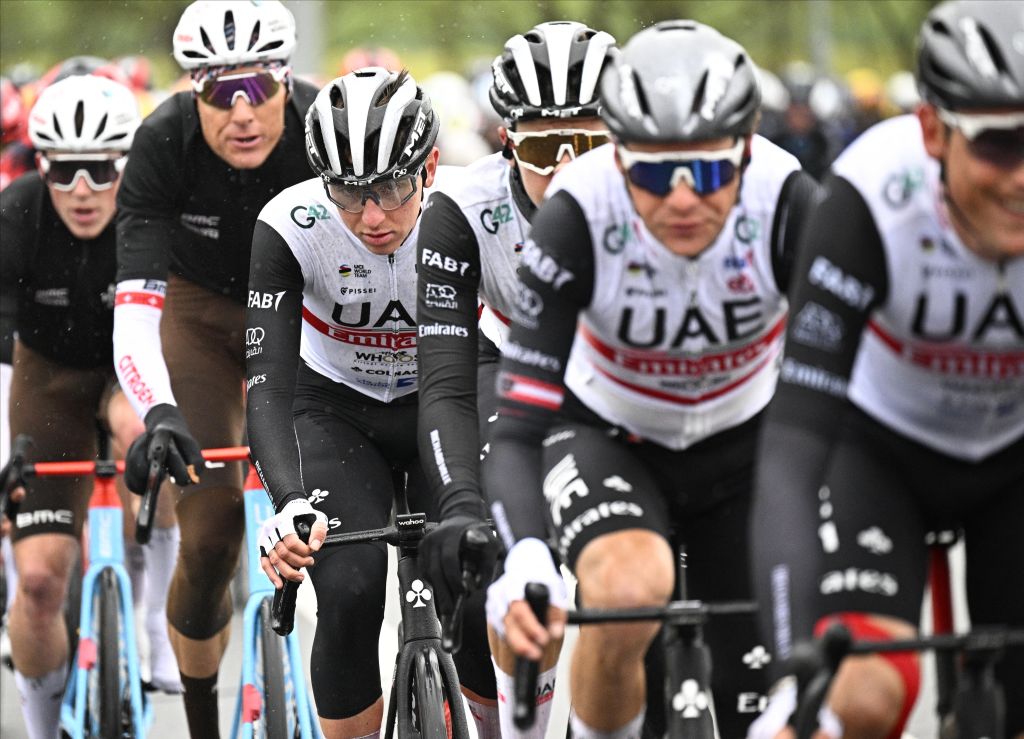
UAE Team Emirates announced their plans to go net-zero by 2030 at the COP28 (United Nations Climate Change Conference) in the UAE today.
CEO and team principal Mauro Gianetti presented the team's plans while claiming the team was the "first professional cycling team to achieve carbon neutrality, an accomplishment achieved at the end of the 2023 season" and saying the team was dedicated to "leading the way in sustainable sports and contributing to a more environmentally conscious future".
UAE Team Emirates were one of the numerous organisations – including teams, races, federations and championship organisers – to sign onto the UCI's Climate Charter in 2022, pledging to measure their carbon footprint, reduce their energy consumption and waste production and use sustainable energy.
The team's consultants measured their carbon footprint from the 2022 season at 224.98 tonnes and, to offset the emissions, the team launched five projects across China, Brazil, Pakistan and Indonesia in forest preservation, renewable energy and blue carbon (carbon stored by the ocean and coastal ecosystems).
"Since day one, our team’s mission has been about more than just winning bike races; we were created to become a vehicle for change. Along with the support from our partners, we have committed to driving positive social impact," Gianetti said during a panel discussion at COP28.
"We've already realised this through a number of health and wellness initiatives that encourage, enable and advocate for cycling and now we will extend our remit by supporting the [UAE's] decarbonisation ambitions and implementing a comprehensive sustainability program aimed at achieving a net-zero carbon footprint by the end of 2030."
Soudal-Quickstep have a similar initiative started in 2020, measuring their carbon footprint at a much higher level of 1,228 tonnes of CO2, or "the equivalent of driving a car 179 times around the world, or 539 return flights between Brussels and New York".
The organisers of the 2021 World Championships in Flanders measured the event's carbon footprint at 2,292 tonnes (not counting travel by spectators) even after implementing numerous measures to reduce the impact on the environment.
The UCI claimed in October the federation had reduced its carbon emissions by 20% and has required WorldTour teams to reduce their emissions by 50% in order to maintain their license.
President David Lappartient also called on race organisers to reduce their carbon footprint by eliminating long transfers, saying the sport has "no other choice but to change".
The UCI's Agenda 2030 aims to reshape the calendar to make travel more efficient, scheduling races in a more unified way across continents, starting from Oceania to Asia, the Middle East, Europe, North America and back to Asia during the season.
"Within Europe, we should have different racing slots in different areas where all the team vehicles can stay for an extended period of time, even if the riders don't," Lappartient told Cycling Weekly in October. "A good example is the Classics in Belgium in the spring and the Italian Classics in the autumn. Teams are in the same hotels for three weeks, there are races every few days, and this reduces the carbon footprint







